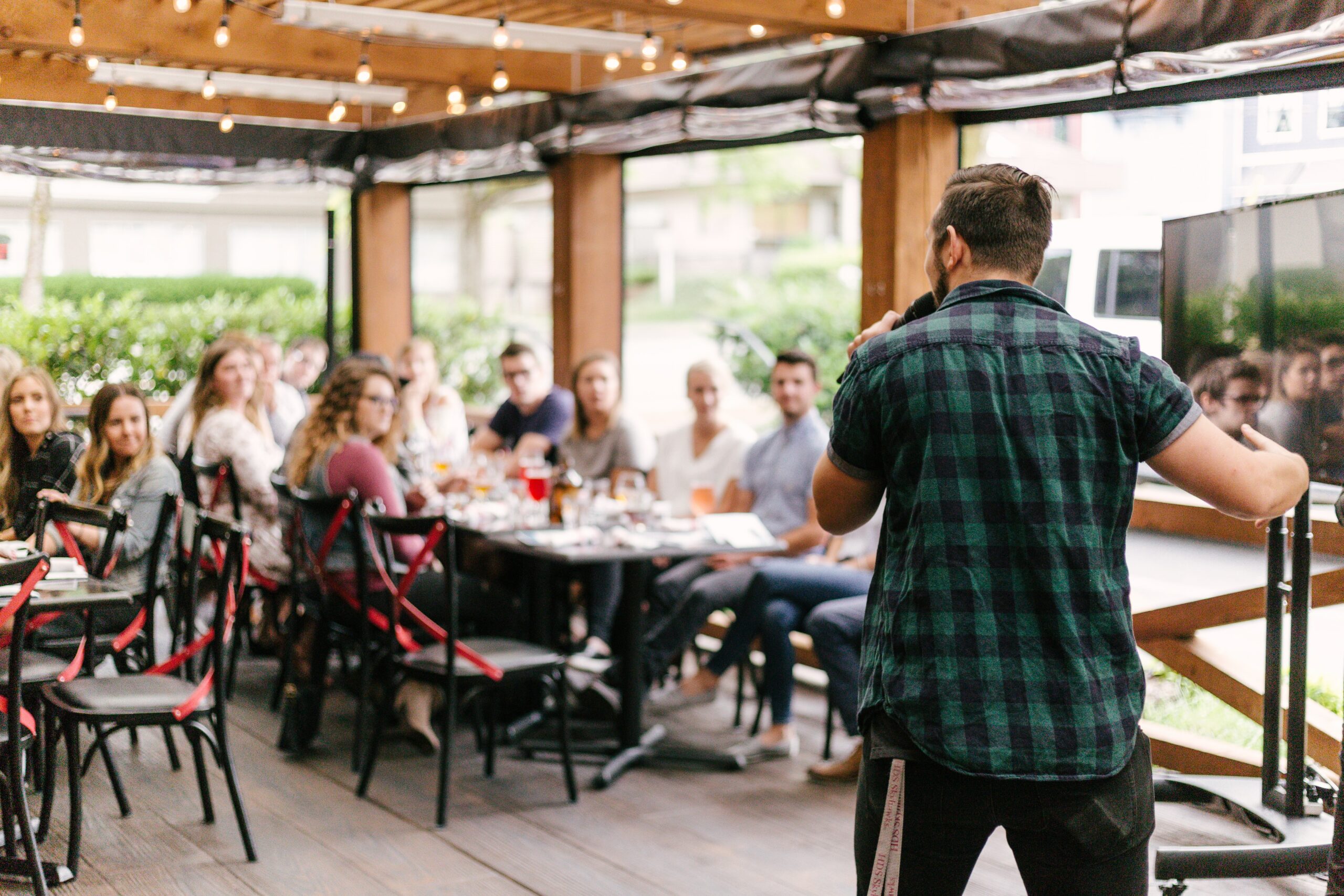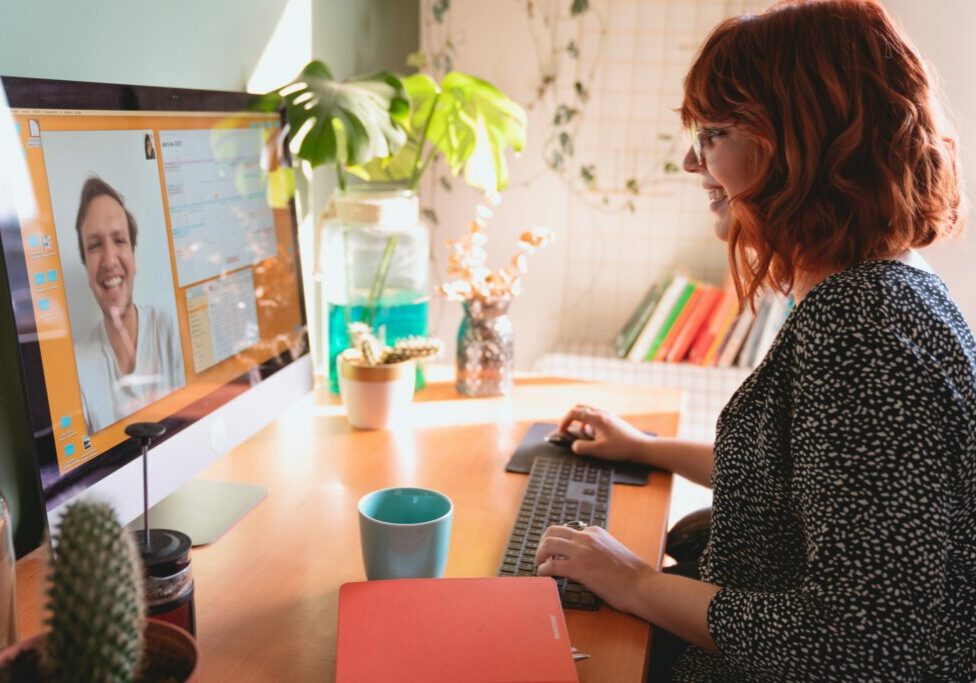It’s no secret when a physician spouse or partner moves for residency, they often face distinctive hurdles that can have a significant impact on their mental health. One of the biggest hurdles is the immense feeling of loneliness and lack of community connection. Finding friends and feeling like they’re part of something during this time can be hard, but doing so can make or break their time in residency, so it’s important to hit the ground running. But how does someone find and build a community when they don’t have any local connections?
Luckily, it’s easier than ever to jump right it… it just takes a little work. Here’s how to find community
The MedCommons Circle
The simplest way to find friends in your new community is to join our friending web-app, The MedCommons Circle. Designed specifically for local physician spouses and partners to meet and foster friendships with those who understand what it’s like to live a life in medicine. From being protective of your free time with your family to being unable to attend all social gatherings as a couple, having someone you can relate to goes a long way to reducing any feelings of isolation and loneliness.
Ask your healthcare program if they provide The MedCommons Circle as an add-on to their physician wellness program. If they don’t, signing up is easy. All it takes is knowing your partner’s NPI number, filling out a profile, and letting the web-app know how far out of your zip code to look for other medspouses and partners (5-50 miles). Reach out if you or your healthcare program has any questions about the process.
Alliance/Auxiliary Programs
Many hospitals and healthcare facilities host social events for their employees and their families. Look to your partner’s medical program to see what type of opportunities they have for spouses and partners of residents. Many have auxiliaries or alliances with activities to get you involved with other spouses and partners in the resident community.
If you don’t know if your hospital or program offers one, reach out to the residency program director or residency program coordinator to find out if they have any groups or outside activities for the spouses/partners of their residents or staff physicians. If they don’t offer any opportunities for physician families, spouses, or partners to get together, then coordinate something on your own!
Membership Communities
In this article about membership communities for medspouses and partners, we’ve published a list of four additional membership communities, aside from The MedCommons Circle, available to physician spouses and partners. There really is something for everyone: one Christian-based community, one male spouse/partner only, one for families of DOs, and another with area-specific chapters.
Social Media
If you want to branch out to social media, look on Facebook to connect with people in your area who share similar interests or hobbies.
- Type in keywords related to your interests or hobbies, followed by the name of your city or town. For example, if you are interested in hiking and live in San Francisco, type in “hiking groups San Francisco” in the search bar.
- Once you’ve typed in your keywords, you can narrow down your search results by clicking on the “Groups” tab on the left-hand side of the search results page. This will show you all the Facebook groups related to your search terms.
- Scroll through the list of groups and click on the ones that seem relevant to your interests. Check out the group’s description, rules, and recent posts to make sure it’s a good fit for you. If you find a group that you like, click on the “Join” button to request to become a member.
You may even find some local physician spouse groups on Facebook if you search for things like “doctor wife + name of your town” or “physician family + name of your town”.
Volunteer
Volunteering is a great way to give back to the community while meeting new people. There are many opportunities for volunteering, including working at a local food bank, animal shelter, or community center. Not only will you feel good about giving back, but you’ll also get to know people who share your values. Here are some ways to find great volunteer opportunities in your community:
- Start by checking with organizations that align with your interests or causes that you care about. You can find local nonprofits through online directories, local newspapers, or by doing a simple online search. Many organizations have volunteer pages on their websites, where they list volunteer opportunities and information on how to get involved.
- Look into websites like VolunteerMatch, Idealist, and All for Good allow you to search for opportunities based on your interests, location, and availability. You can also filter your search results based on the type of volunteer work you’re interested in, such as event planning, mentoring, or fundraising.
- Local government agencies such as parks and recreation departments, libraries, and schools also have volunteer programs or opportunities available. Contact Also, check with your city or town’s website, which may have a list of volunteer opportunities and contact information for volunteer coordinators.
Join A Local Group
Joining a club or group connects you with like-minded people who share your interests. Whether it’s a book club, sports team, or hobby group, joining a club or group can help you feel more connected to your new community. If you are religious, attending services at a local place of worship can be a great way to meet new people who share your beliefs.
Workshops
Are you into cooking? What about crafting? Jewelry making? Finding local shops that cater to hobbies can be a fun way to explore your interests with like-minded people. Here are some ways to find local shops that cater to hobbies:
- Try searching for keywords related to your hobby, followed by the name of your city or town. For example, if you are interested in stamp collecting and live in New York City, search for “stamp collecting stores in New York City.”
- Check social media platforms such as Facebook, Instagram, and Twitter. They can be great resources for finding local shops that cater to hobbies. Try searching for hashtags related to your hobby, followed by the name of your city or town. For example, if you are interested in knitting and live in Chicago, search for “#knittingchicago” on Instagram.
- If you know other people who share your hobby, ask them if they know of any local shops that cater to your interest. They may be able to recommend a great store or community to check out.
- Search local directories such as Yelp, Yellow Pages, or local business directories as they can be great resources for finding local shops that cater to hobbies. They often have customer reviews, store hours, and contact information to help you plan your visit.
- Attending local hobby events such as conventions, fairs, or exhibitions can be a great way to connect with other hobbyists and discover new shops that cater to your interests. These events often have vendors and exhibitors showcasing their products, allowing you to explore different hobby shops in person.
Making friends during residency as a medspouse or partner can be challenging, but the effort is crucial for maintaining mental health and a sense of community. Fortunately, now there are more than a couple of ways to meet new people and foster relationships, many of which don’t require you to rely on your spouse’s medical program. By trying out different approaches and being proactive in reaching out to others, you can build a strong support network and enjoy a fulfilling life – wherever you land.
Other articles that may interest you:
9 Tips to Survive Medical Residency as a Spouse
Married to a Medical Resident: Advice for a Healthy Relationship



